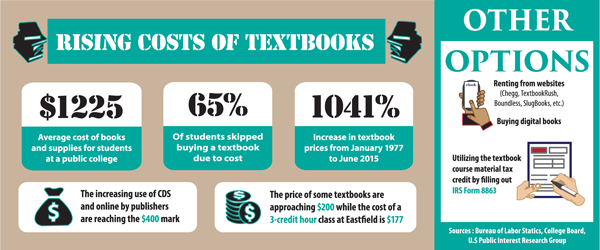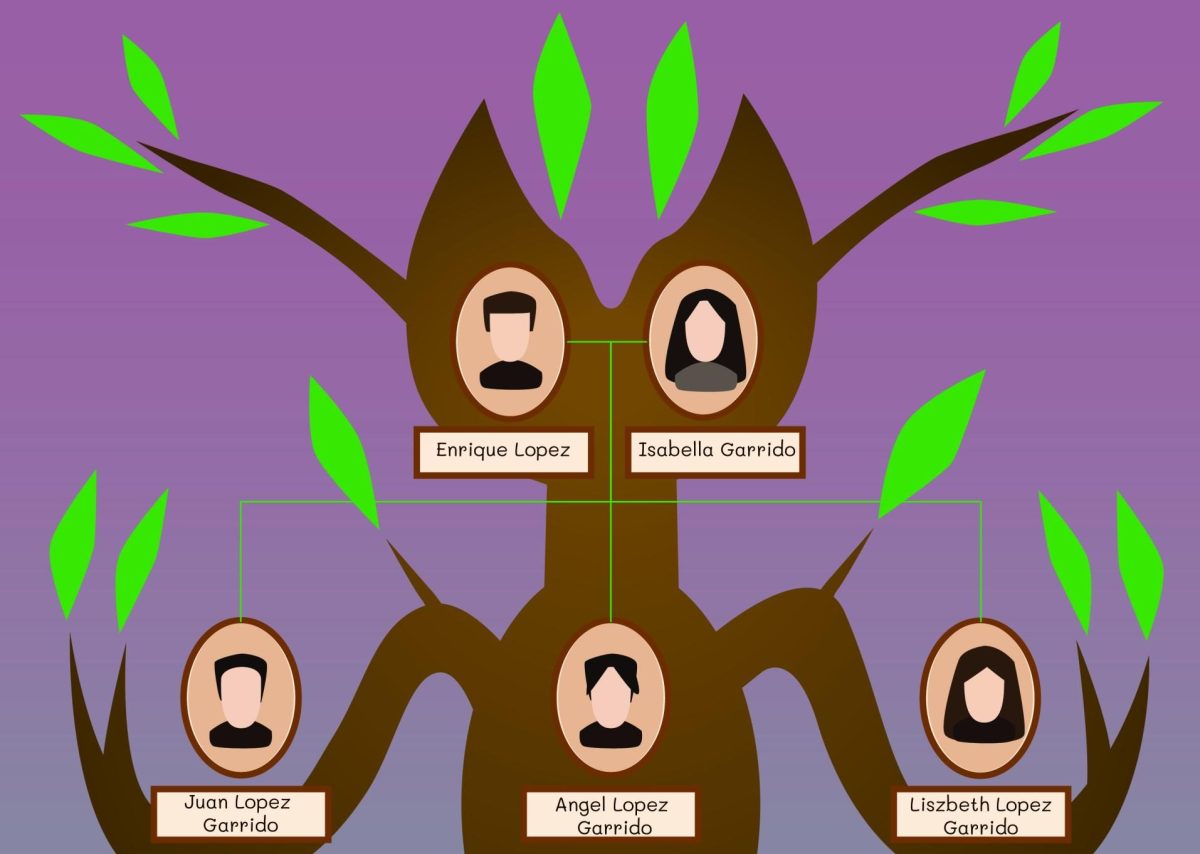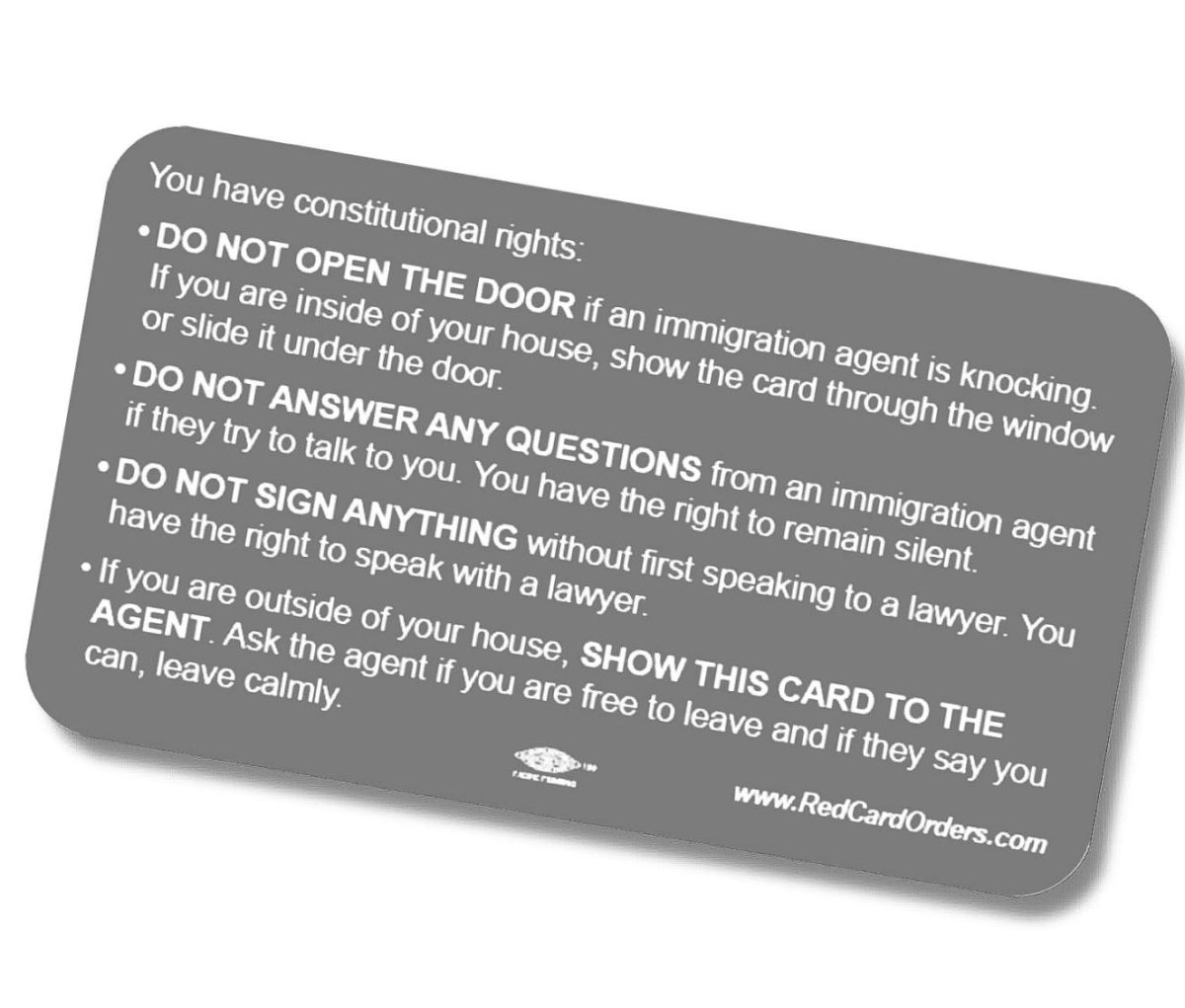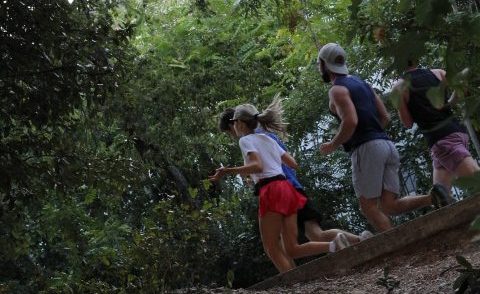
By DAVID SILVA
@DavidSilvaETC
Professors around campus are looking for alternatives to traditional textbooks to save students money, including a free biology e-book.
The average cost of a new textbook was $82 in 2014, while books and supplies for a year at a public, two- year college cost $1,390, according to the College Board.
With the cost of a three-credit course at $177, Dallas County Community College District students often pay more for their textbooks than they do for class.
“I’ve spent about a good $150 on textbooks, and that was just renting,” dual credit student Matthew Honeycutt said. “I’m never buying any books. It’s either going to be renting or sharing or finding free e-books.”
From January 1977 to June 2015, textbook prices have risen by 1,041 percent, over three times the rate of inflation, according to the Bureau of Labor Statistics.
Textbook publishers also sell online add-ons, often forcing students to pay for access codes.
“If there’s a free trial for a program, I try to get it done before the free trial expires,” pediatrics major Alexis Adame said.
[READ MORE: Is Eastfield ready for Campus Carry?]
Some professors have noticed the burden this puts on students and are making efforts to offer aid.
History professor Liz Nichols requires no textbook for her online students and allows her face-to-face students to use an older edition.
“It takes a little bit more time,” Nichols said. “I go on the Internet and find primary sources, articles, videos, and I basically provide the links and the documents.”
English professor Michael Morris said cost is one factor that prompted him to write his own textbook.
“The majority of faculty here at Eastfield are very sensitive to how much it costs to get an education,” he said. “They want very much for students to not have to spend a lot of money.”
Morris said that the use of electronic books saves students money and enhances learning.
“They are easier to take notes in,” he said. “They’re easier to use to transfer your work. Some set-ups are more interactive. You can do the reading and click on something and work on an experiment for class or go to a video.”
Some professors have made hard-copy books available for check-out at the library reference desk as well.
[READ MORE: District extends registration to boost enrollment]
Professors created an e-book for biology for non-science majors with OpenStax, a non-profit resource from Rice University.
They’ve been met received positive feedback from students.
“The book also integrates with educational programs,” professor Jose Flores said. “As you do your homework, it highlights parts of the book that you should read, and you can create study guides from there.”
Biology professors have likewise written a lab manual for biology non-science major classes and are implementing it this semester.
“Our class is totally cost-free,” Flores said. “Students don’t pay a penny for books.”
—Sarah Sanchez contributed to this report.
https://eastfieldnews.com/2017/02/07/immigration-ban-sparks-impromptu-protests/








